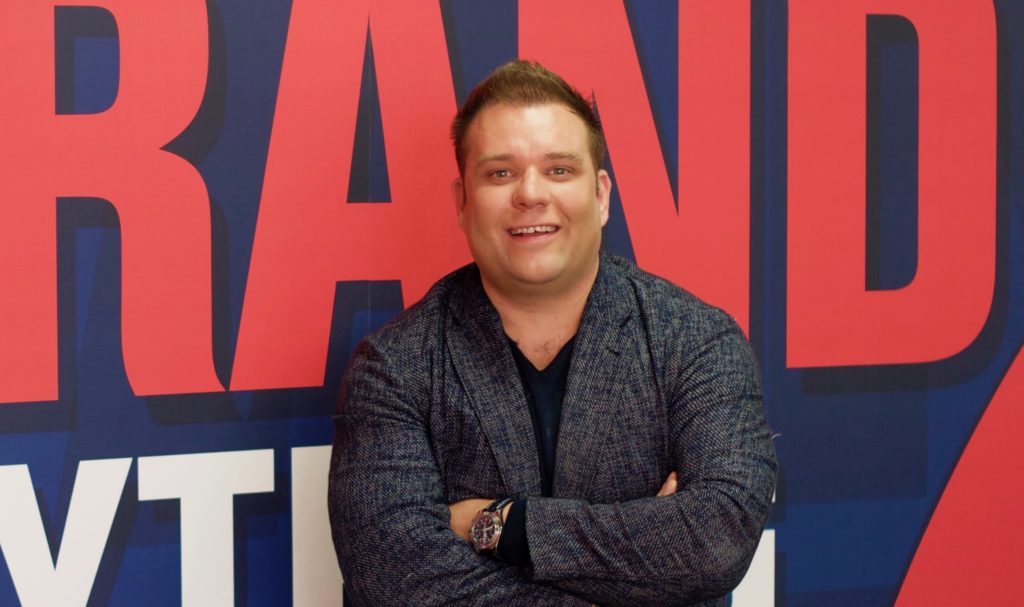In order to scale up a business the one thing above all else that’s needed is sales.
This may be an elementary and obvious statement yet scaling products and sales can be much the same thing, each tracking a parallel course in the growth cycle of a business.
Here I discuss scaling up a sales force as part of startup to scale up company, particularly relating to the experience the owner of an SME may have.
Start ups are agile
If as Steve Blank poses, “a startup company is a temporary organisation designed to search for a repeatable and scalable business model” then a startup business is often an agile animal, able to move, flex and pivot in order to take advantage of market conditions and move away from non-productive channels.
With this comes growth spurts and potentially those big eureka moment sales. During this phase of the business growth relevant to product and brand sales techniques are being explored and laid down alongside winning initial clients and achieving sales.
As the business progresses and moves into the more permanent scale-up phase, the initial flexibility and ability to pivot may not necessarily be required as an element of predictability comes into the sales funnel as the business settles down into sales patterns. Along with this may come a plateau in the growth spike.
I’d conclude that stable growth in sales comes from a combination of Eureka moments and predictable sales patterns.
When to invest in a sales force
The question for the SME is when and how does one invest in a sales force. Whilst we understand our business back to front and as such we are the greatest advocate of our brand, unless we as owners have the tools in our kit box to sell, are we holding our business back?
The leap to invest in staff, find the budget for dedicated sales professionals is a logical step but it can be a real hit and hope situation. One can have a seriously good organic turnover, and I say organic because it may be owner-driven rather than strategically sales driven and grown before one gets to the point of a sales team.
Further reading on sales
- Four tips to accelerate sales for SMEs
- Three tips for building a foundation of trust with sales leads
- Can an accurate sales forecast improve company performance?
What to consider before getting a sales force
Clearly understand both the product and the customer before you invest in the sales force. If you don’t, then the investment may not be utilised to the full. You may choose to dip your toe into this pond with freelancers, self-employed distributors or agents, back office cold call agencies. The list is endless of support available and where there is a fee there is a service available. But the key is to find someone with the sales toolkit that works with you to build the sales wing of the business.
A good sales manager may aid in developing the business just as much as the product boffins. He or she understands the customer, the market, what they like, want to purchase and what challenges they are faced with.
Not every salesman is the guru who can land the eureka sale every time, but understand what your lead salesman does combined with your product that makes the sale. Harness and roll this out to the sales team and from there you should be able to gradually achieve consolidated sales over a longer term which are maintained through the startup / scale-up phases into a sustainable business.
In order to achieve true scale, the growth mindset needs to be established within the culture of the business from day one and be both internally and externally projected. The developed message can then be rolled out to the sales team in order to deliver a consistent message so they can understand the company, brand, product and customer.
Sales process must be replicable to scale
Like any product that needs to scale, the process of sales itself must be replicable in order to scale. There will always be that eureka fluke sale or the Midas touch salesman. However, in order to achieve successful sales growth, the sales force must be on one message and have a replicable structure to work within.
Therefore, in order to successfully scale the salesforce, simple building blocks need to be put in place. These are:
Scale when informed
Scale only when you can see clear patterns of repeatability and scalability and you are able to build an effective and efficient sales machine. You should clearly understand the target market, sales strategy and how it is implemented.
Establish standardised processes
The initial agility of the sales process with a small team may at first be fruitful, yet may eventually limit the companies ability to scale. Scale stems from the ability to replicate, generally by standardisation of the following a) product b) message c) sales process d) IT and sales infrastructure.
Assess – Trim – Grow
When scaling and focusing on increasing sales can show growth into areas which may not have initially been projected, the growth curve may not be even and the pressure to create and react to the market can change the business shape. Be prepared to assess and trim during this phase. Short term tactical growth initiatives may not be in the business’s interest long term. Consolidated sustainable sales are more valuable than short-term objectives. Be prepared to assess and trim these areas of the business.
In assessing, there may be a period of learning about your product and marketplace. Be aware of in the race to grow there is a risk of racing to the bottom in terms of cost to achieve the sale. Is it not better to identify the key areas where your product is strongest and build upon selling these attributes? As such its not similarly logical to assess where your sales team is strongest and build on this, trimming away inefficiencies?
Remember the economies of scale can tip into both sides, scaling the salesforce needs to be a lean and planned investment that takes shape as your business grows in a journey much the same as your products and client.
Look to the future, take the organic growth you have achieved and learn from to realise your company’s goals. Good luck!
Elizabeth McKenna is the owner of online florist Lizzies Bundles.
Case study: Natterbox

Cloud telephony provider Natterbox provides a service which is embedded in the Salesforce platform – the largest sales platform in the world. Here, Ian Moyse, sales director of Natterbox explains how investing into its existing sales team has boosted its results.
‘Initially Natterbox was founded with a simple goal – to remove the complexity to buy, deploy, manage and use a business phone system,’ says Moyse. ‘By moving it from traditional hardware PBX to the cloud, we could deliver many of the benefits of generic cloud to the phone. However, we realised that the market for this was quickly becoming saturated, so we worked closely with our customers to identify their greatest business need.’
‘What they wanted was the ability to deliver a greater customer experience and to aid staff in being more efficient and informed. We enhanced our service and focused on integrating with Salesforce and completed the deal with them in September 2018.’
Moyse says that Natterbox, which employs 70, has invested in its sales team over the last 18 to 24 months to accelerate its operations.
‘The team is a robust solution selling team with strong customer care and ethics combined with good product knowledge and understanding of customer needs’, he says. ‘We run our business on Salesforce and sell to Salesforce customers, so understanding their needs through the use of our own system also brings value to the engagements we have with clients.’
Professional memberships for staff
‘We’ve also become members of several groups such as the APS (Association of Professional Sales) and ISM (Institute of Sales Management) to provide our team with personal professional memberships that encompass training, events and quality certifications.
He says the investment means the company is attracting a faster growth of new clients, winning larger brand name global accounts and seeing existing clients grow their usage with us as well as higher average sales values.
Case study: Everything Branded

Charles Alexander Distribution is an online promotional products distributor trading under many names with its flagship being Everything Branded.
CEO Paul Rowlett says the B2B firm has clients from a local takeaway to a global player like Google or Amazon.
‘In 2016 we turned our attention to the US when we opened Everythingbranded.com in spite of the fact that the US is traditionally difficult market for British firms to compete in, our new USA arm was employing 40 UK sales staff and achieving over $6 million in sales in just one year.
‘Since then we have been focused on going after an even bigger share of the $23 billion US promotional gifts market and have opened a new HQ and sales centre in Las Vegas,’ he says. ‘Of course, the most important thing in any growth plan is putting together the team to make it happen and so we have been recruiting sales staff – the mainstay of our business, since.’
‘We now employ 130 staff in the UK and US and we are on target to increase staffing to 260 by early 2021 to hit our sales forecasts. The sales recruitment market is incredibly competitive, expensive and time consuming. Our recent growth into the US has compounded these challenges as we have been forced to recruit concurrently on both sides of the Atlantic. This has resulted in a huge call on my time dealing with recruitment agencies and interviewing large numbers of candidates. In the UK however we have brought recruitment in house to reduce costs and have had great success finding staff this way, so much so that we will be mirroring this in the US.’
He says other challenges have included the merger of slightly differing cultures and giving its US salespeople a sense of loyalty to its parent company in Leicester. To solve this, so some of its senior sales executives have travelled to Las Vegas to assist in their training and induction.
‘Over the last year we have tried to recruit candidates that view sales as a calling and have the ability to learn and improve on the job – never an easy task! One of the things that has facilitated our recruitment drive however is the training that our in house Training Academy affords. I believe it has been really important to show our new recruits the opportunity for career progression; it has demonstrated that the company invests in and is committed to its sales people and supports their advancement.’
Salary of course has been another way we have attracted the best candidates. We pay well, offer great commissions (in fact in year one it is possible to achieve up to a third of the basic salary in commissions). But it’s not been all about money and rewards. In my opinion, affording time to deliver professional recognition has been essential in motivating and retaining our sales people.
And finally, yet fundamentally I firmly believe that our great company culture and kick ass work space has made a difference. The latter includes a picnic area for meetings, Star Wars and Jurassic Park tunnels, top spec kitchen, Pauly’s American themed diner and recreation centre. This has added to the daily job satisfaction, performance and attendance of both our new and existing sales staff.








